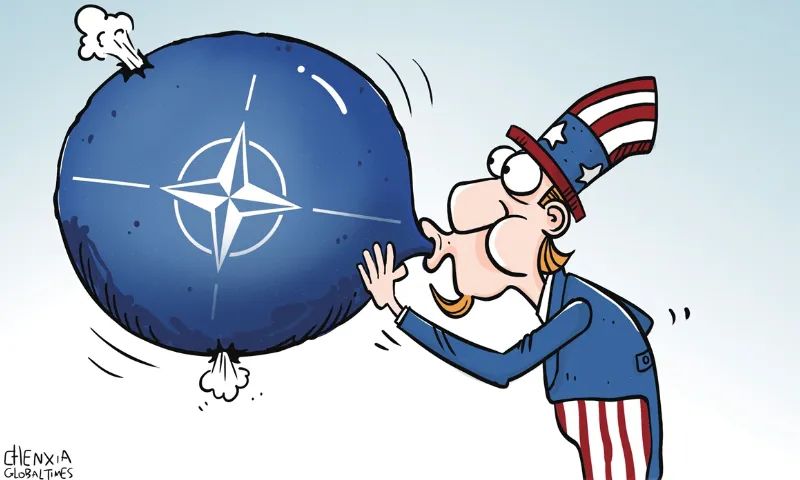Gao Jian, a scholar at Shanghai International Studies University and China Forum expert.
The annual NATO summit began in Vilnius, Lithuania on Tuesday. A day before that, NATO Secretary General Jens Stoltenberg published an article titled "A Stronger NATO for a More Dangerous World" in Foreign Affairs magazine. In one of the paragraphs, he writes, "What we do now - or do not do - now will define the world we live in for generations. So we will send a clear message: NATO stands united." However, is the organization really standing united?

While Turkish President Recep Tayyip Erdogan's Monday agreement on supporting Sweden's bid to join NATO seems to have given the organization one less headache for now, more disputes within the bloc have become prominent recently.
This includes disagreement on issues such as Ukraine's fast-track NATO membership, which countries like the UK, Poland, and the Baltic states back, while US President Joe Biden said Ukraine is not yet ready. Regarding the question of whether NATO should strive for more presence in the Asia-Pacific, French President Emmanuel Macron already said no. As for Washington's recent decision to provide cluster munitions to Ukraine, many, if not most, NATO members have voiced their opposition. Even Stoltenberg's extension as NATO chief aims to prevent differences within NATO over the next secretary-general from escalating into a public spat between member states.
The NATO summit intends to demonstrate transatlantic unity. But the truth is that behind such a facade lie the contradictions of the member states. After the war broke out, Macron, who said in 2019 that Europe was experiencing "the brain death of NATO," claimed the Russia-Ukraine conflict has given the military alliance an "electroshock." But no matter how powerful it is, such a shock can neither bridge the internal differences and contradictions nor hide the organization's nature as a rigid and outdated bloc.
The conflict between Russia and Ukraine has gradually exposed the divisions within NATO member countries. NATO's "unity" formed based on anti-Russian consensus can only cover the widening differences between some member states, but not solve them. And it is becoming increasingly difficult to maintain such a unity.
Looking back at history, we can easily determine that NATO is a military organization absolutely dominated by the US. And since its birth, the bloc has been filled with a Cold War mentality. At that time, European countries were devastated after World War II and unable to gain a strong voice in NATO. It is the essence and destiny of NATO to be completely dominated by the US.
As a product of Cold War ideology, NATO can live until this day because of the geopolitical crises in Europe over the past three decades. The secret behind the US' consistent domination of the military-security mechanism in Europe lies in the country's ability to effectively utilize the historical grudges and conflicts of real interests between countries on the European continent. Thus, it can be said that the military conflict between Moscow and Kiev is fully in line with Washington's strategic intentions, especially in terms of revitalizing NATO.
In a sense, the US provoked the war to re-draw Europe into its own embrace. And together, these nations constructed a seemingly solid transatlantic alliance. But the Russia-Ukraine conflict also consumed US' strategic costs and resources greatly, while making European countries understand better that they have been used as pawns by the US in its geopolitical competition. Unlike previous security crises in Europe, the EU will become the biggest victim of the Russia-Ukraine conflict and will have to swallow the bitter fruits of suffering from the war directly.
Today, the situation in Europe has grown to be rather complicated, with the US trying to interfere in European military, economy, and politics. Although certain European powers have a strong desire not to attach themselves to the US, they have to live at the latter's mercy in many areas because they are not ready for a new international order constructed on the principle of equality and mutual benefit.
Nevertheless, NATO has limited means to bridge the differences between its members. The alliance is essentially a security mechanism; thus, members will mainly focus on the defense area with very little flexibility. Another current problem for NATO is the US presidential election in 2024. Whoever becomes president will make the further development of NATO full of even greater uncertainties.
